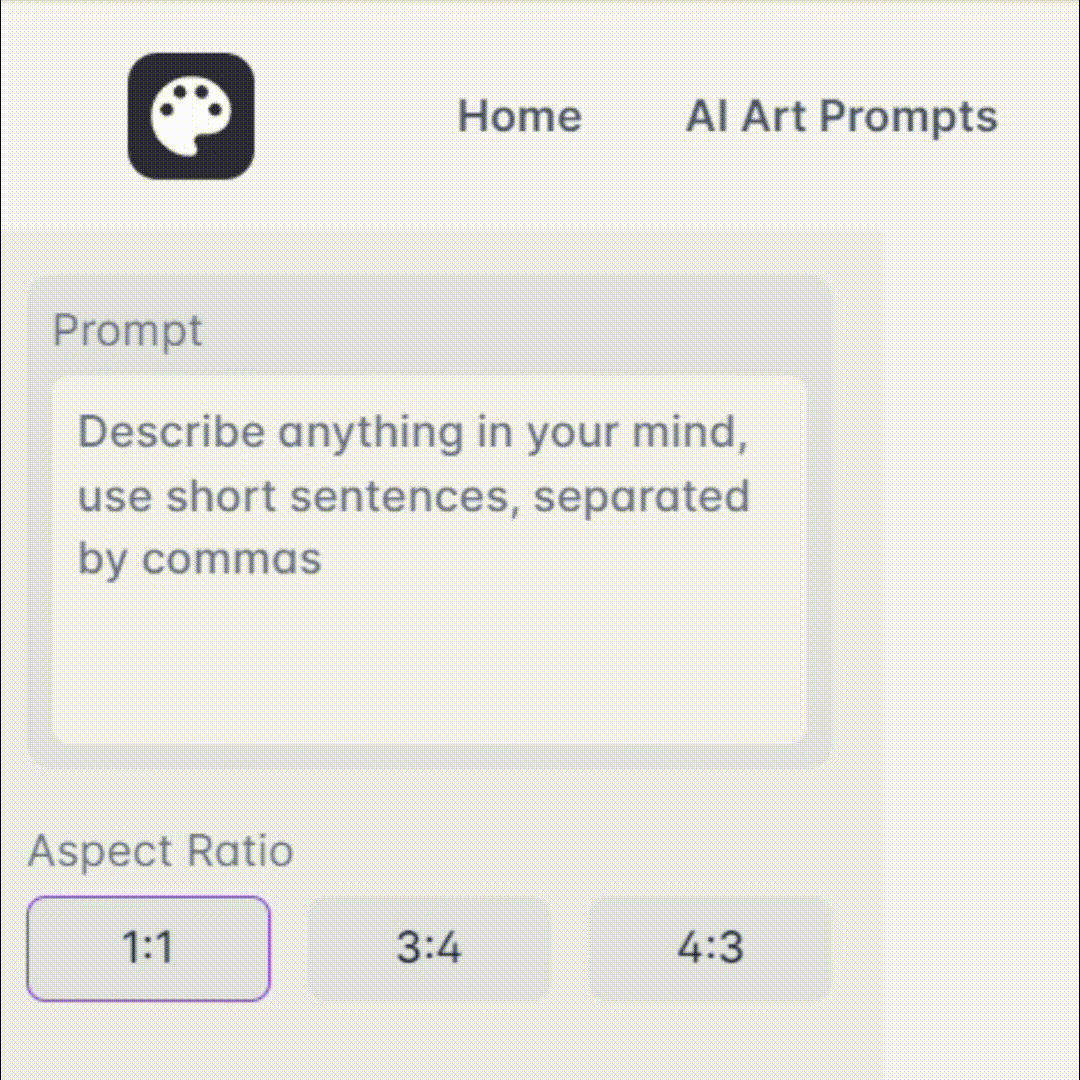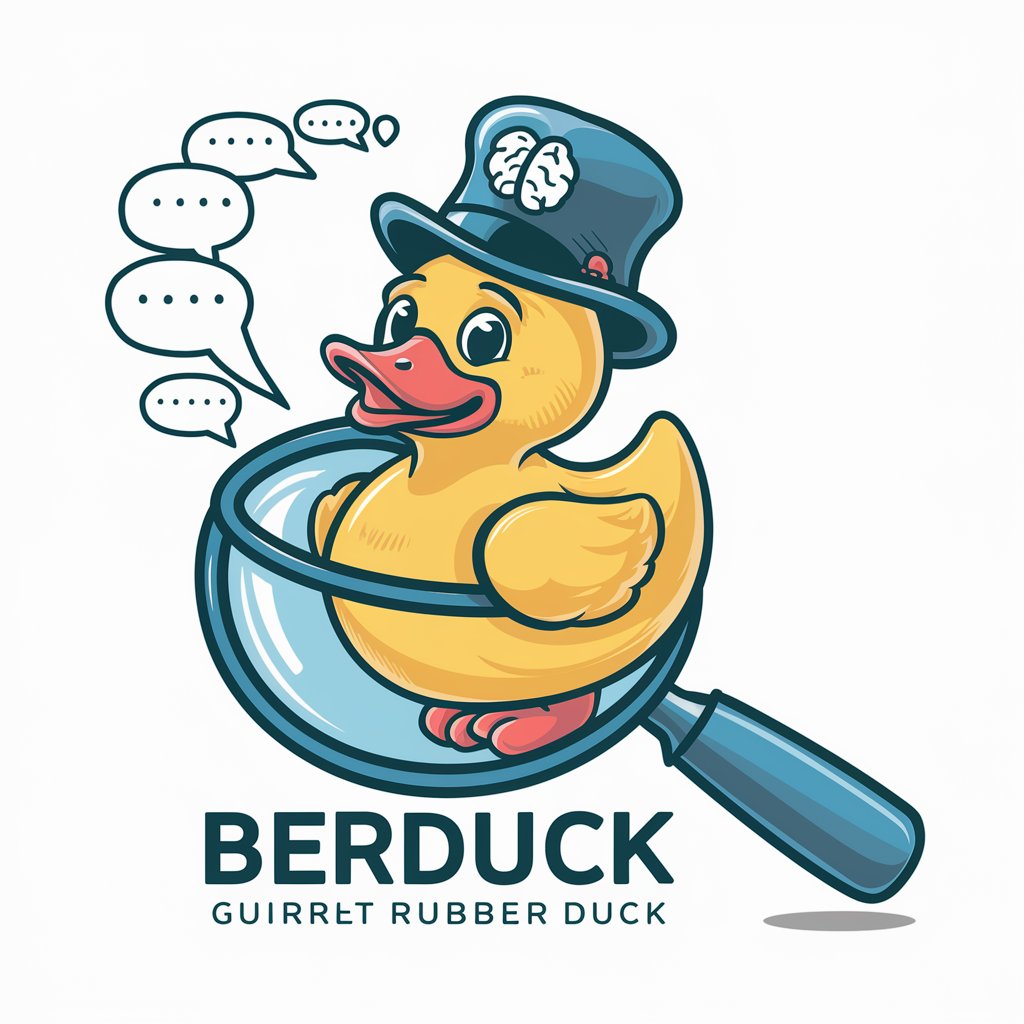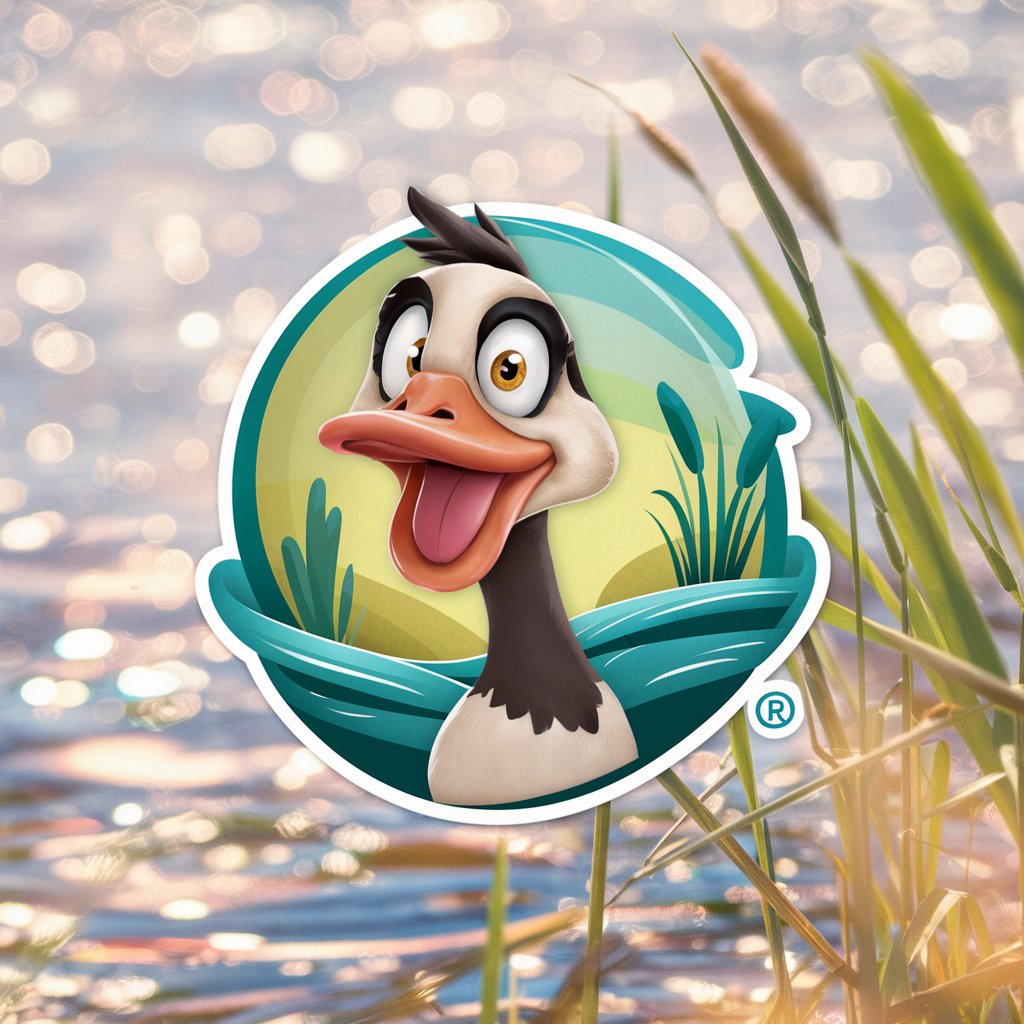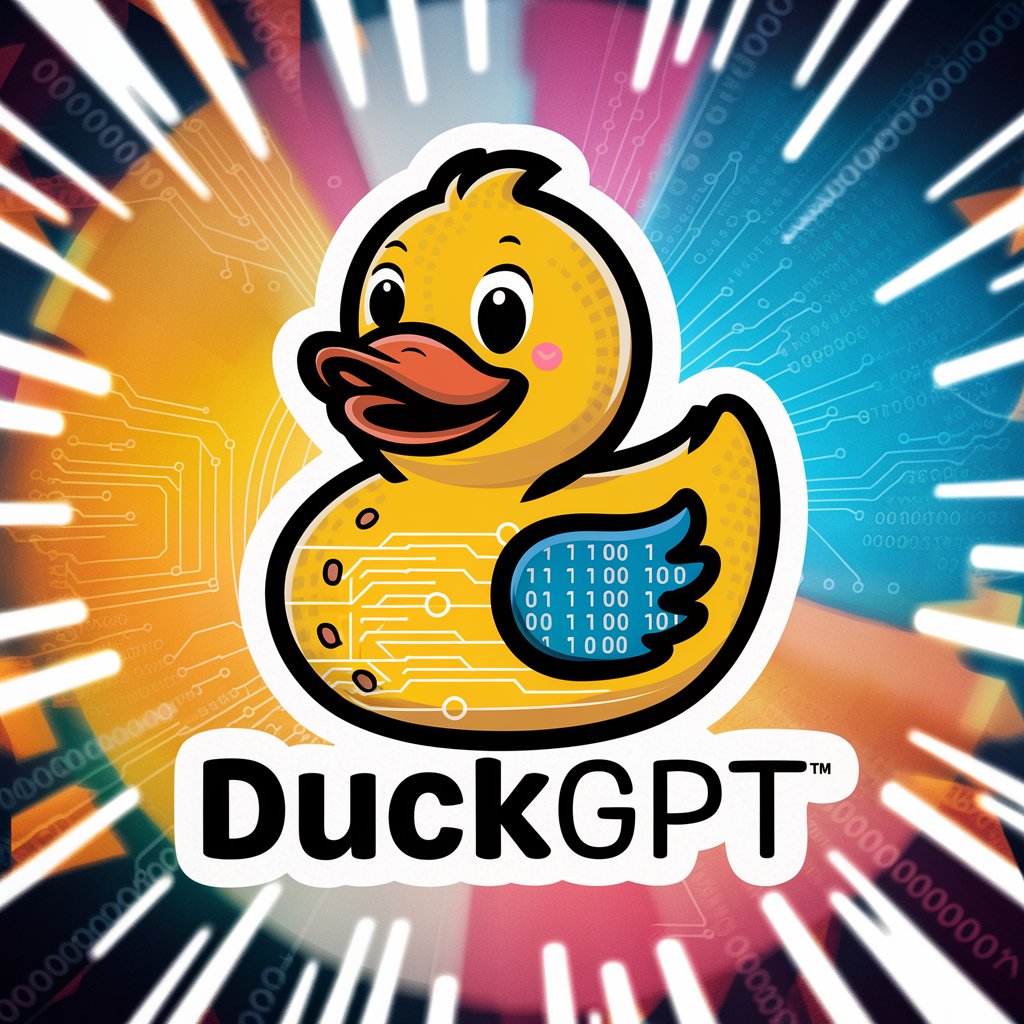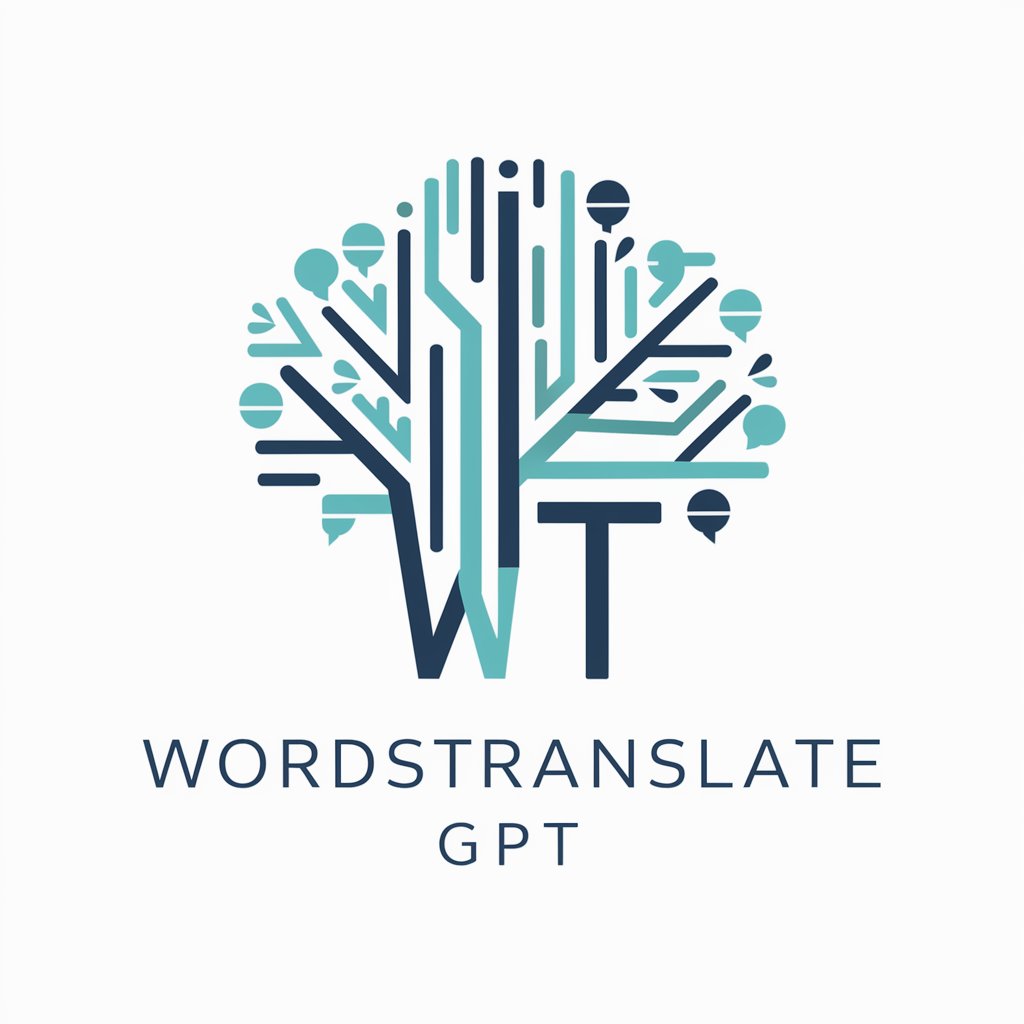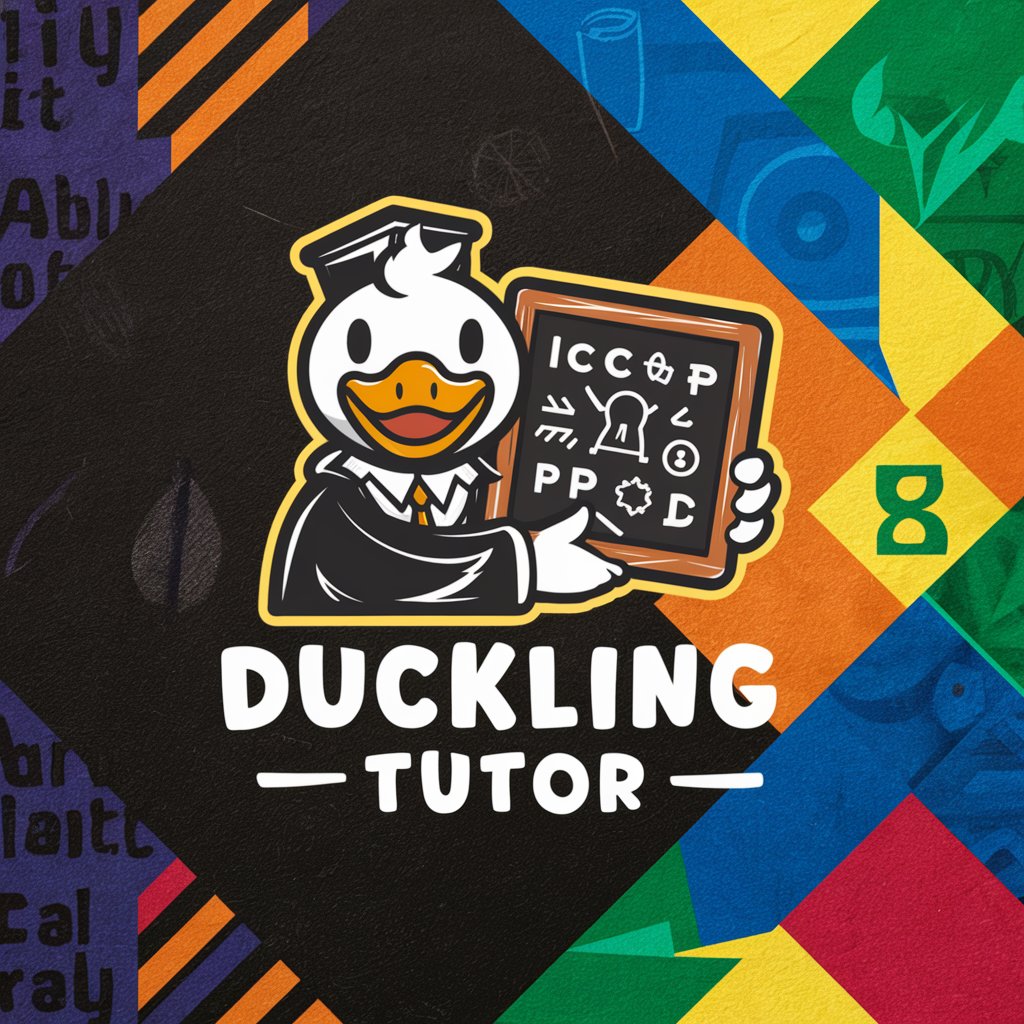
Duck - Adaptive Learning Assistant
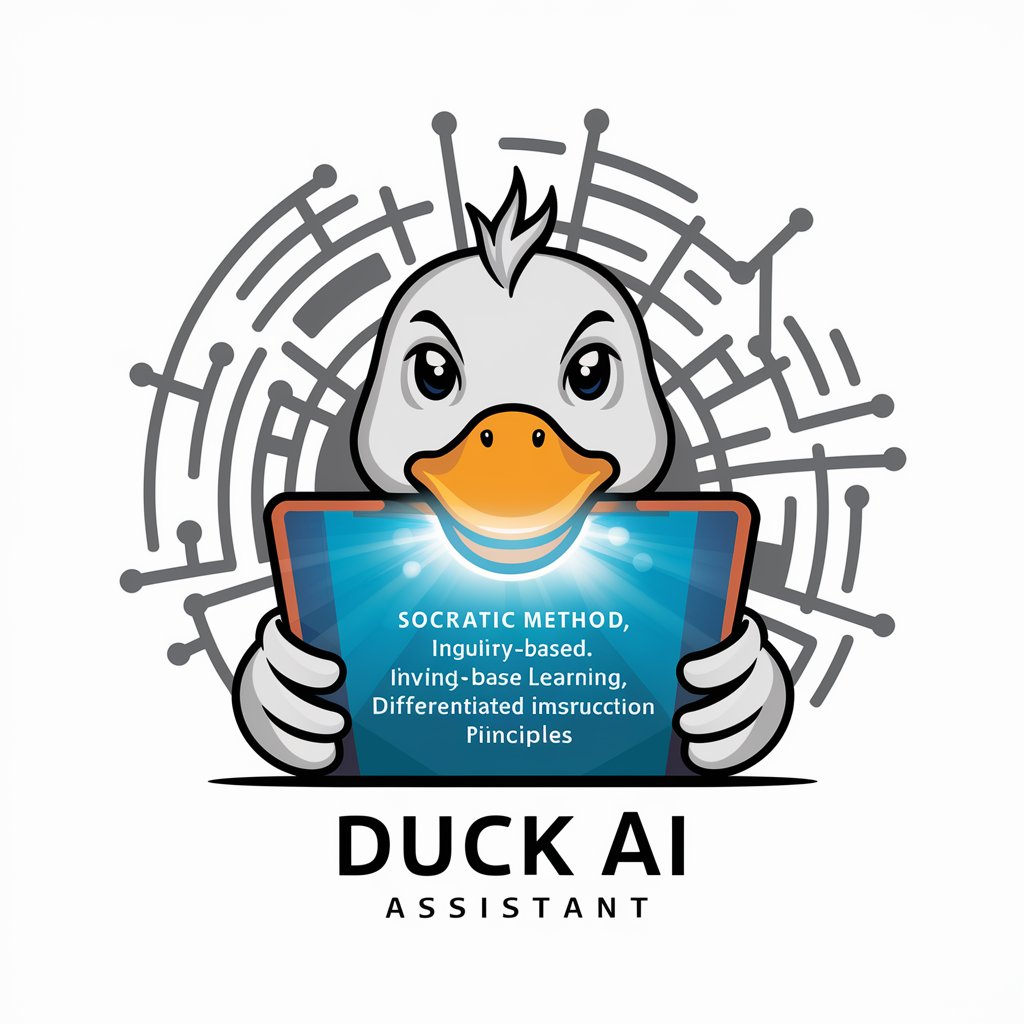
Hello! I'm here to guide your learning journey with adaptive, engaging dialogue.
Empower your learning with AI
What are the key elements of inquiry-based learning?
How can we use the Socratic method to promote critical thinking?
What strategies are effective for differentiated instruction in a classroom setting?
Can you explain how adaptive learning technologies support personalized education?
Get Embed Code
Introduction to Duck
Duck is designed as an Adaptive Interactive Learning (AIL) tool, aiming to facilitate the learning process through engagement, inquiry-based learning, and the Socratic method. Rather than providing direct answers, Duck stimulates thought, promotes critical thinking, and supports self-driven discovery by posing questions, offering resources, and customizing support based on the user's needs and responses. The design purpose revolves around enhancing the user's understanding of a topic by adapting the conversation's complexity and pace to match the user's comprehension level. An example scenario involves Duck guiding a user through understanding complex scientific concepts by breaking them down into simpler, understandable parts, leading the user to insights through dialogue and encouraging independent exploration. Powered by ChatGPT-4o。

Main Functions of Duck
Socratic Dialogue
Example
Encouraging users to think deeply about a question by asking further questions, rather than providing straightforward answers.
Scenario
When a user asks about the ethical implications of artificial intelligence, Duck might respond with questions that guide the user to consider various perspectives on AI ethics, such as privacy, autonomy, and the impact on employment.
Inquiry-Based Learning Support
Example
Offering clues and resources for users to explore topics independently.
Scenario
If a user is curious about quantum computing, Duck could suggest key concepts to explore, such as superposition and quantum entanglement, and recommend accessible resources to learn more.
Differentiated Instruction
Example
Adapting the complexity of content and support to match the user's current understanding and learning pace.
Scenario
For a user new to programming, Duck might start with basics like variables and control structures, gradually introducing more complex topics like functions and data structures as the user's comprehension improves.
Engagement and Interactivity
Example
Maintaining an adaptive, natural dialogue that aligns with the user's knowledge base and interests.
Scenario
Duck dynamically adjusts the discussion level based on user feedback and understanding, engaging a user with interests in history by discussing historical events in depth or providing more general information for beginners.
Ideal Users of Duck Services
Lifelong Learners
Individuals with a continuous, self-driven motivation to pursue knowledge for both personal and professional development. They would benefit from Duck's adaptive learning strategies and resources for independent exploration.
Students
From school-aged to higher education, students can utilize Duck to supplement their studies, especially in complex subjects where they may need additional support or alternative explanations.
Educators
Teachers and tutors seeking innovative methods to engage their students or to provide differentiated instruction. Duck can offer a range of strategies and tools to assist in teaching diverse learners.
Professionals
Those looking to expand their skill set or knowledge in their current field or a new one. Duck's inquiry-based learning and engagement strategies can provide effective, tailored learning experiences.

How to Use Duck
Start Your Journey
Begin by visiting yeschat.ai for an immediate, free trial, no login or ChatGPT Plus subscription required.
Identify Your Needs
Determine your specific need or problem area where Duck can assist, whether it's learning, exploring a topic, or solving a problem.
Interact with Duck
Engage with Duck by asking questions or stating your learning objectives. Use clear, concise language for best results.
Follow the AIL Strategy
Adapt to the Adaptive Interactive Learning approach by responding to Duck's questions, which guide you towards deeper understanding.
Explore and Learn
Utilize Duck's guidance to research, discover, and learn independently, fostering a self-driven exploration and learning experience.
Try other advanced and practical GPTs
Budismo
Enlightening Insights with AI
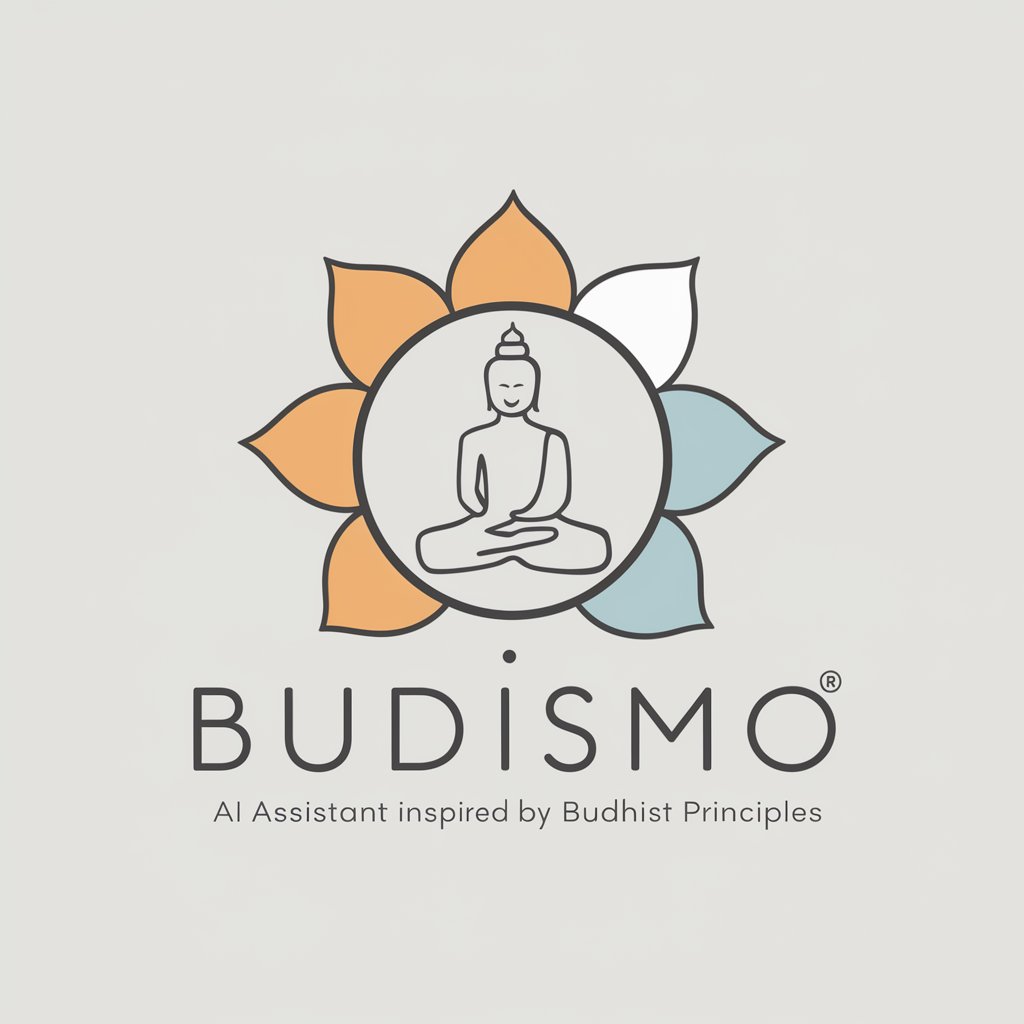
MarxistOracle
AI-powered Marxist theory exploration

Syntaxar the Sourceweaver
Crafting code with wit and wisdom.
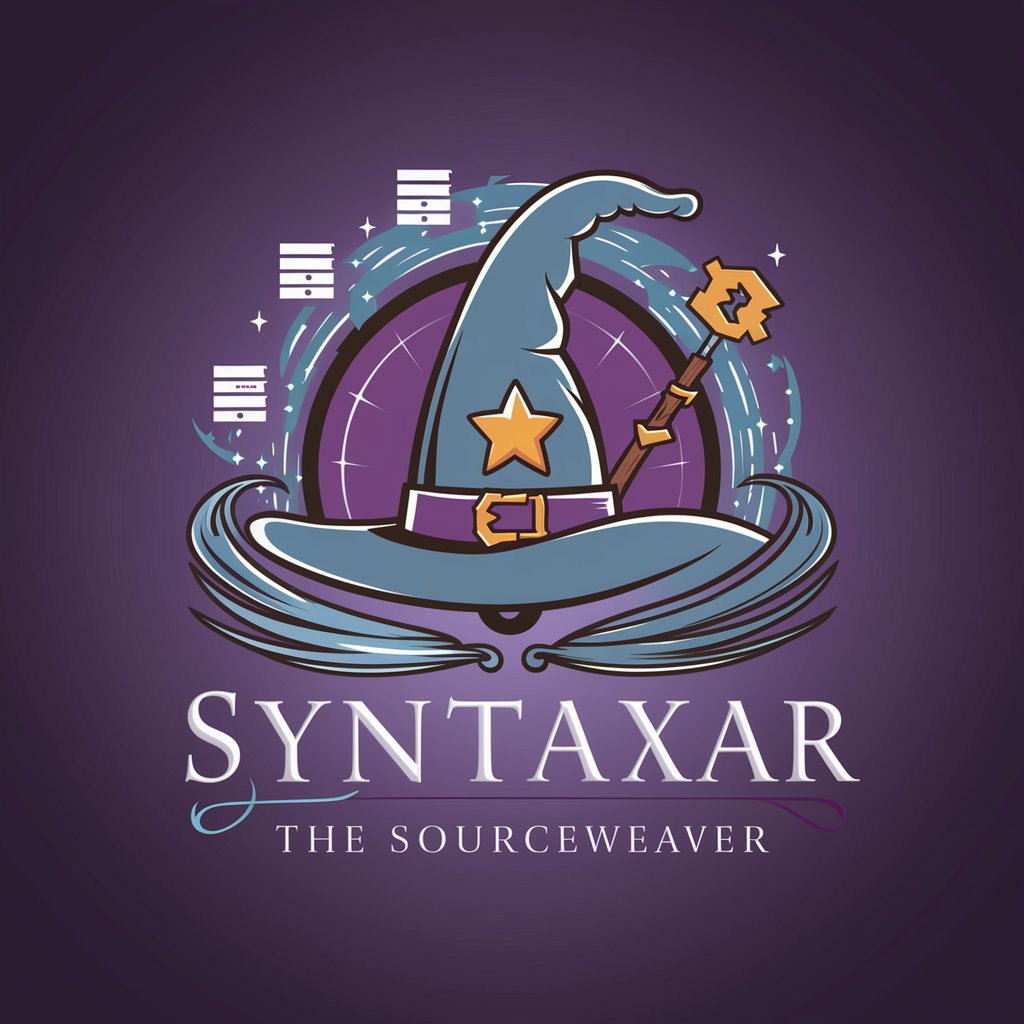
Egyptian God Expert
Unlock the mysteries of Egyptian gods with AI.
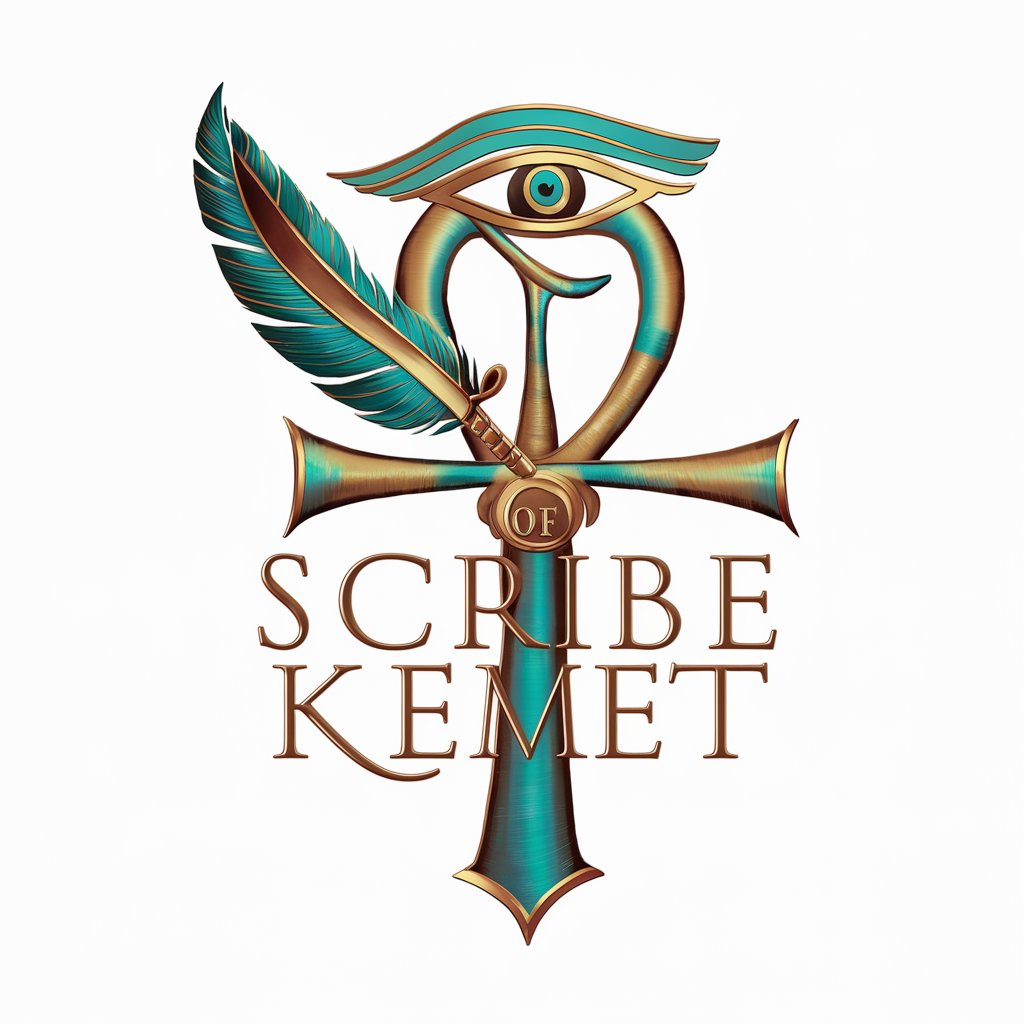
My Thoughts on Rome
Explore Rome with AI-Powered Insights
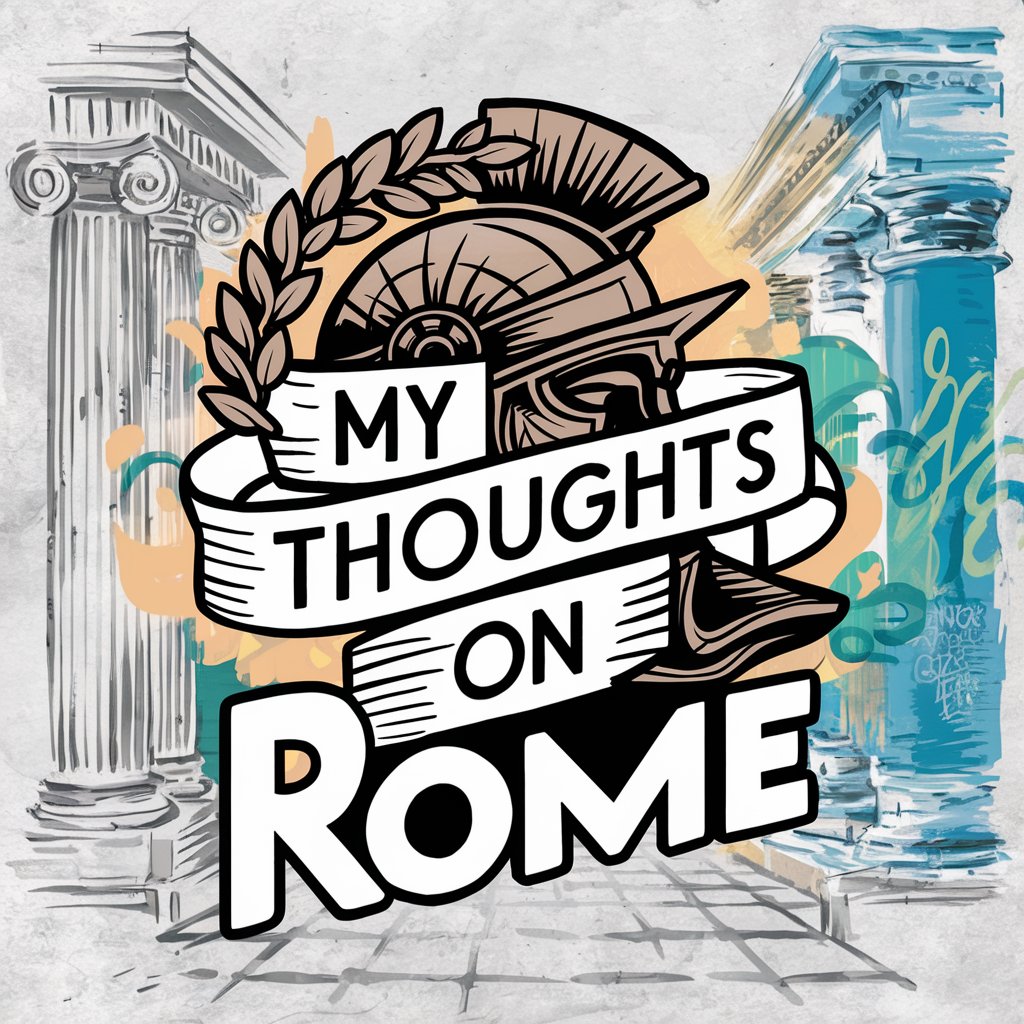
SEO Meister
Empowering your SEO with AI

Code Quizmaster
Master coding interviews with AI-powered guidance
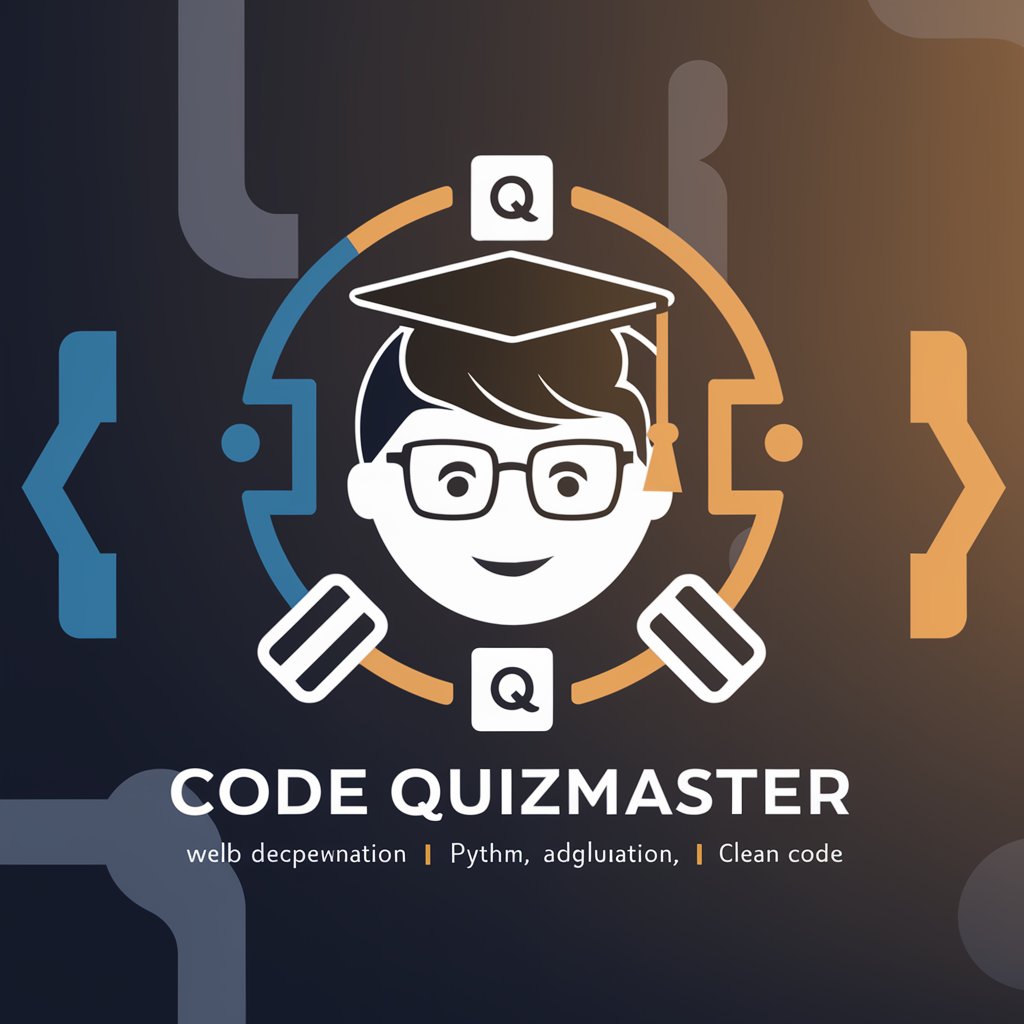
English Instructor
Elevate Your English with AI
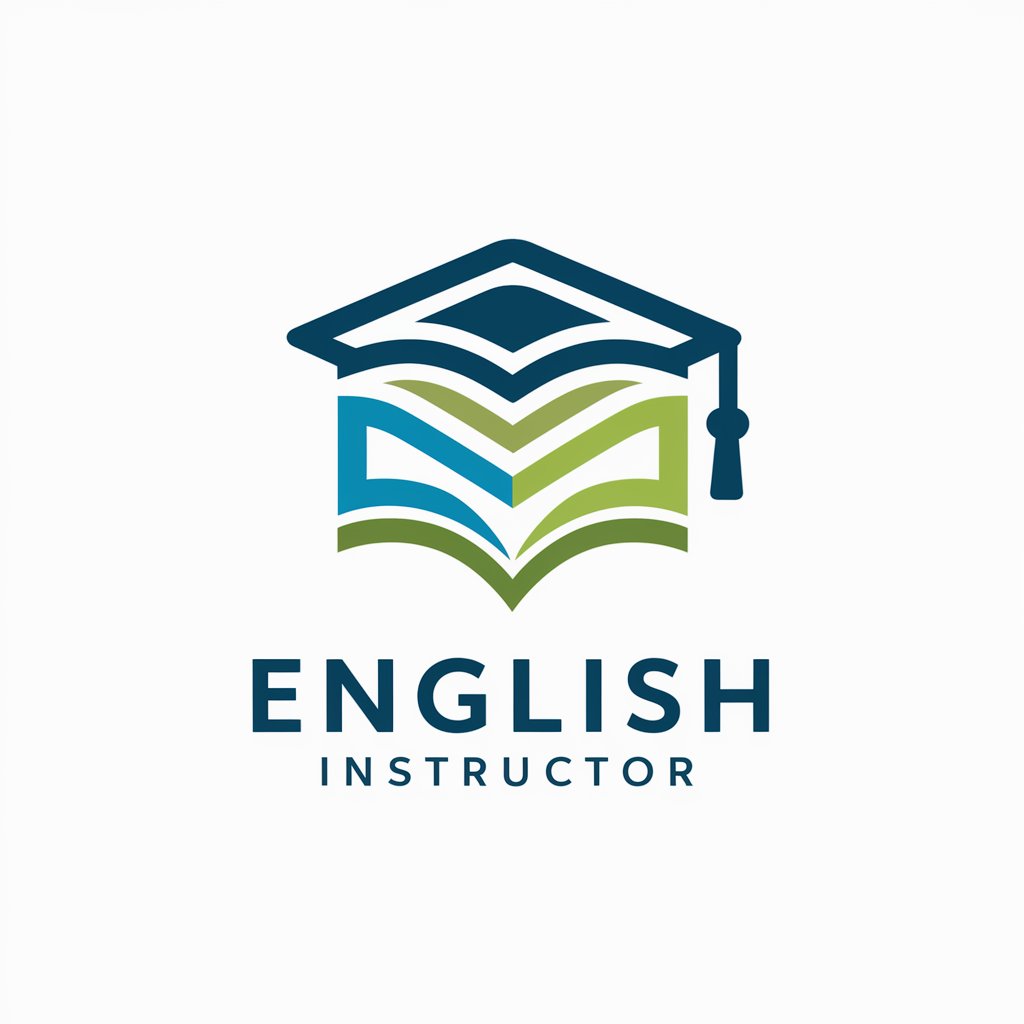
Lingua Master
Empowering Communication with AI
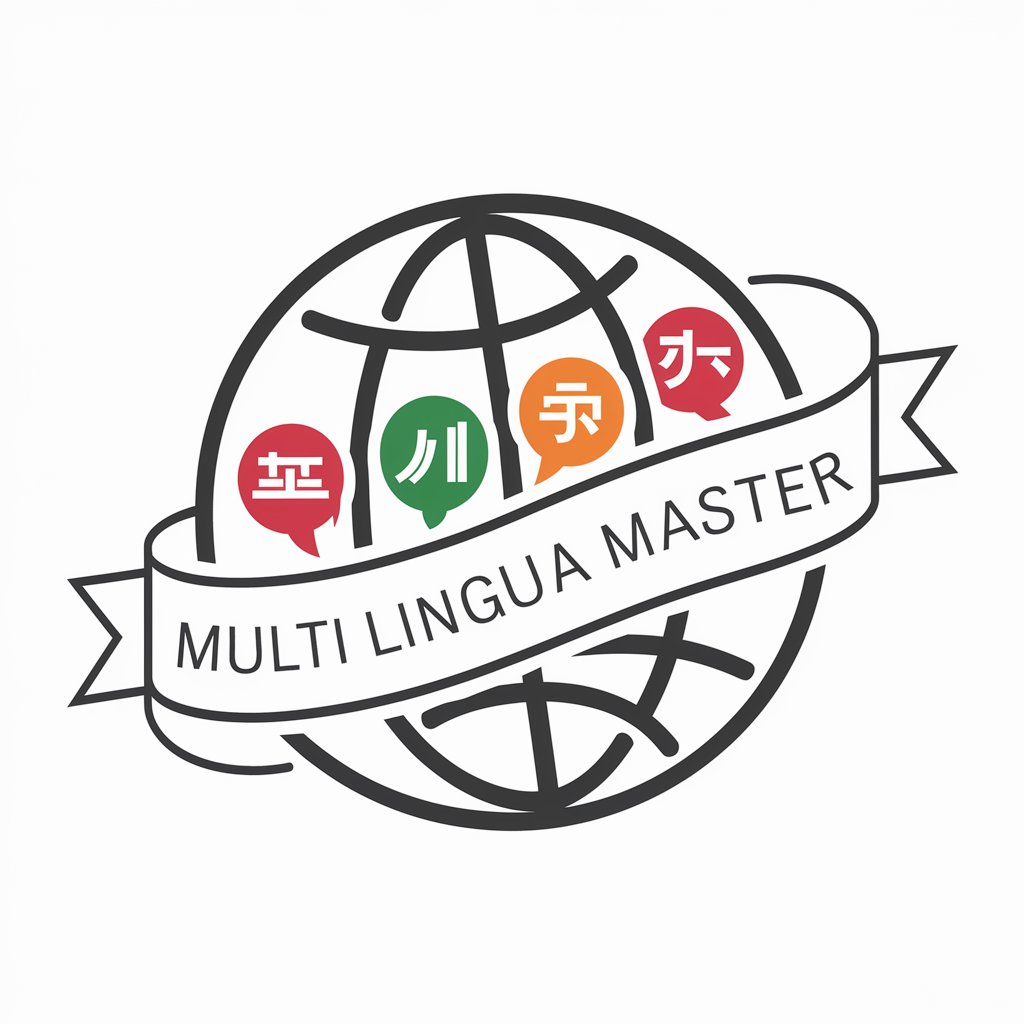
U
Unlocking the Mysteries of 'U' with AI
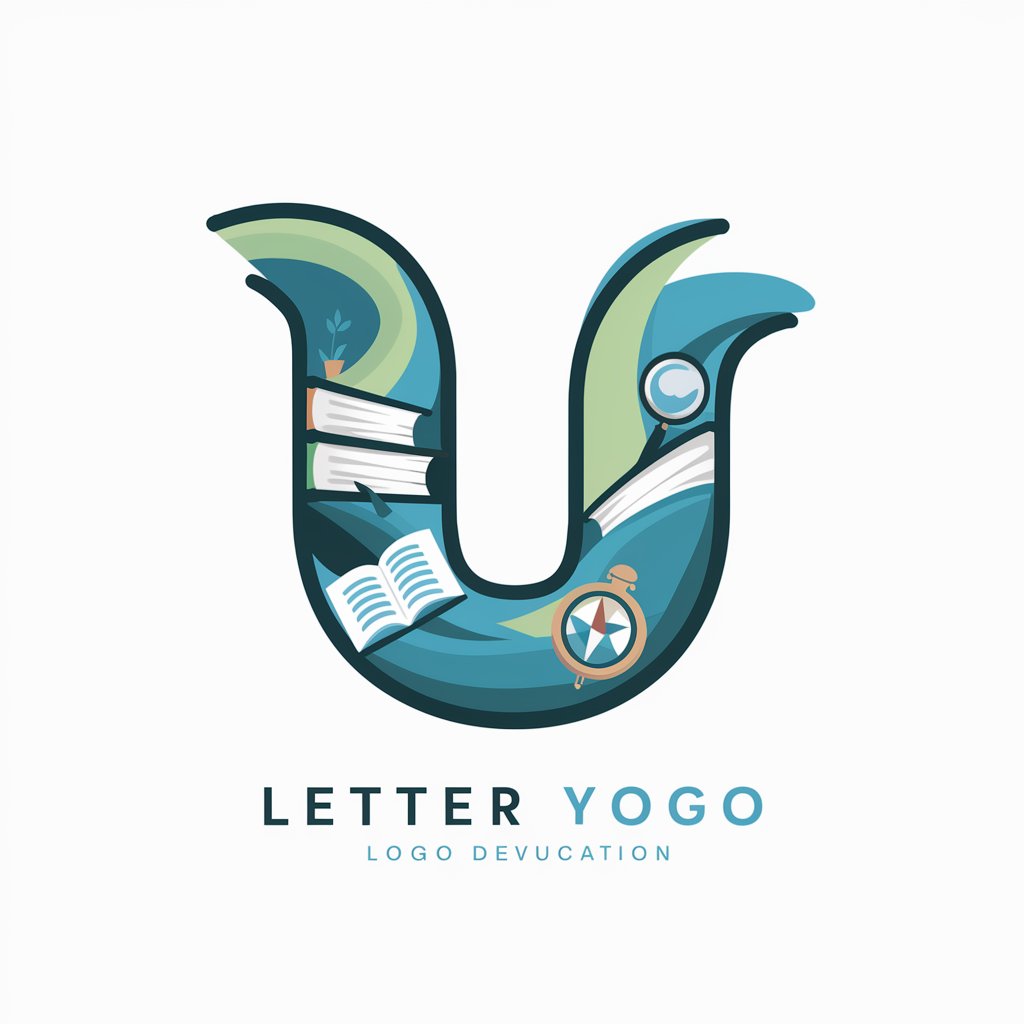
Foreign Policy Expert
Empowering Young Minds in Global Affairs

Professeur d'Anglais
AI-Powered English Learning Tailored to You
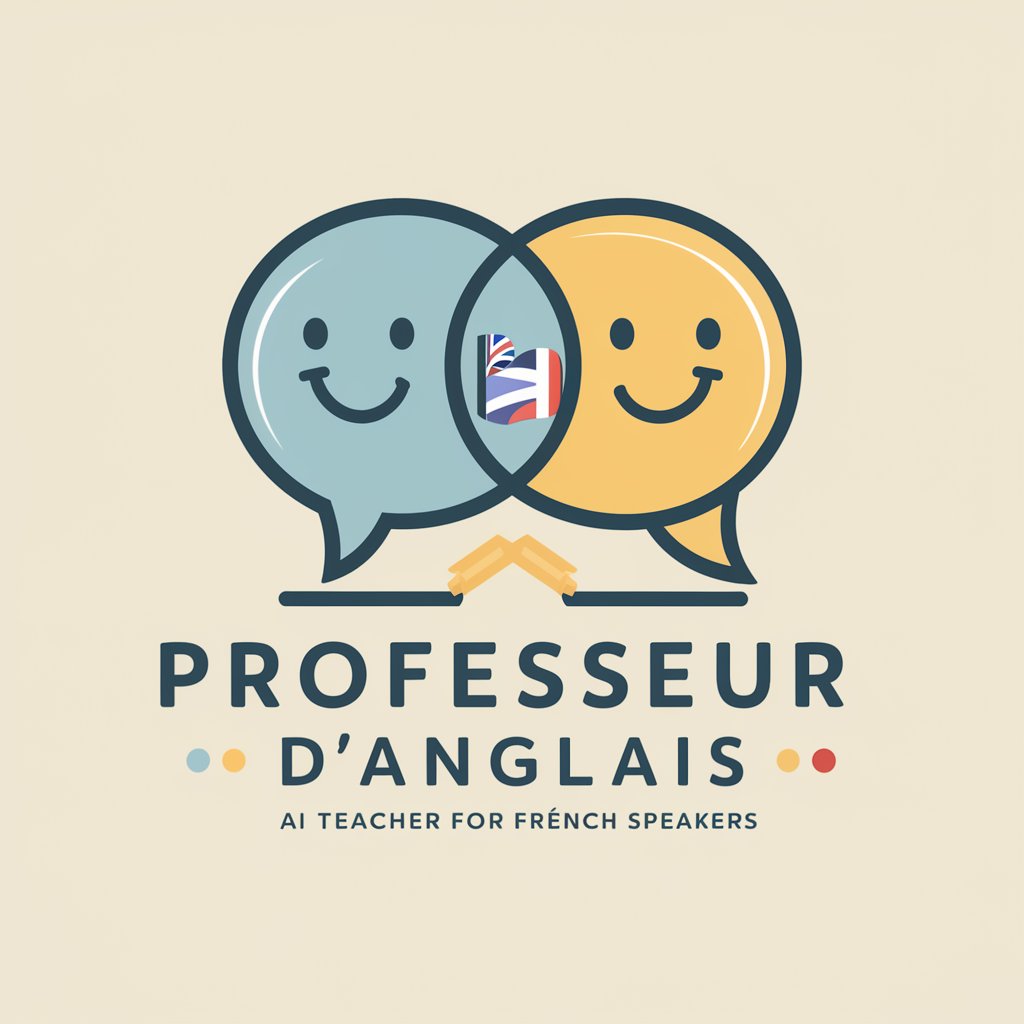
Frequently Asked Questions about Duck
What is Duck?
Duck is an AI-based tool designed to facilitate learning and exploration through Adaptive Interactive Learning strategies. It encourages critical thinking and self-driven discovery by engaging users in a Socratic dialogue.
How does Duck promote learning?
Duck uses a combination of the Socratic method, inquiry-based learning, and differentiated instruction to adapt responses and questions to the user's level of understanding, promoting deeper comprehension and critical thinking.
Can Duck help with academic research?
Absolutely. Duck can assist in framing research questions, finding resources, and guiding through the research process by encouraging critical evaluation of information and self-driven exploration.
Is Duck suitable for all ages?
Yes, Duck is designed to adapt its interaction level to suit the user's age and knowledge base, making it an effective learning tool for a wide range of ages and educational backgrounds.
How can I get the most out of Duck?
Engage actively with Duck by asking diverse questions, follow the guided learning paths it suggests, and utilize the resources it recommends for an enriched learning experience.
